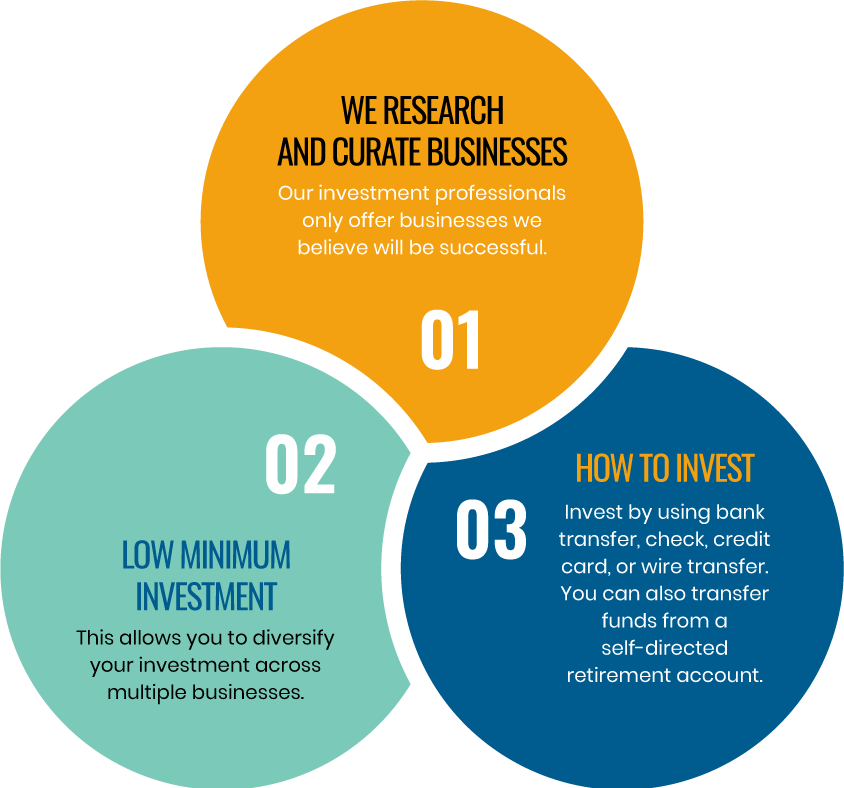
Investor Education
Most frequent questions and answers
Getting Started
Welcome! The world of startup investing is exciting and dynamic, and like other high-risk investments, it’s important to learn as much as possible before you get started. We suggest the following:
- Review the Title3Funds Website
- Read our Frequently Asked Questions
- Review our Glossary of Terms
- Review our Directory of Company Profiles
If you want to dig deeper and learn more about the investment process, we recommend reading through the wealth of information offered on the following websites:
- FINRA (Financial Industry Regulatory Authority)
- SIPC (Securities Investor Protection Corporation)
- SEC (US Securities and Exchange Commission)
- SBA (Small Business Association)
- Learn more about Crowdfunding from the SEC website here.
- Read the SEC Investor Bulletin here.
Once you feel comfortable with the investment process, click on the “Invest” button in the top right corner to get started.
Click the button in the top right corner that says “Invest.”
We love startups for their innovation, vision, and unflinching drive to succeed. For many people, entrepreneurship is the intersecting peak of both creativity and productivity. If all goes well with the venture, we are able to see the founders fulfill their dreams and make an impact on the community. It is important to know that crowdfunding investments can be very risky, and may result in a complete loss of your investment.
Everyone has their own reasons for investing in startups and we encourage you to find your own ‘true north.’
We strongly urge that the underlying motive for your startup investments go well beyond monetary goals. In many situations you may not see a return on your financial investment, or, you may end up losing your investment entirely.
We love it when investors feel a connection to the business — founders they admire, missions they believe in, and goals that are bigger than themselves. As an added bonus, should the startup evolve into an IPO, we are thrilled to see them gain a return on their financial investment…but even happier that they enjoyed the journey.
Crowdfunding is a financing method in which money is raised through soliciting small individual investments or contributions from a large number of people. Over the last few years, crowdfunding websites, like Kickstarter, have become a popular way to solicit charitable donations and to raise funds for artistic endeavors like films and music recordings.
Yes, but it’s fairly new. Under rules adopted by the SEC in 2015, the general public now has the opportunity to participate in the early capital raising activities of startup and early-stage businesses by way of crowdfunding. This new regulation allows companies to use securities-based crowdfunding to offer and sell securities to the investing public.
Learn more here.
Title3Funds has established itself as the premier option for startup crowdfunding. There are several factors that make us unique.
Selection process: We want our investors to feel confident with their investment options on Title3Funds, so we put substantial effort into vetting companies who apply with us. Our team of advisors and consultants only approve the best and most promising businesses to be featured on our portal.
Accountability: We are committed to improving the process. Collectively, our team has processed nearly $500 million in transactions and we use the latest technology to improve efficiency and accountability in the Crowdfunding Space.
Minimum Raise: Our minimum fundraising limit is significantly higher than other platforms in this space. With a $100,000 minimum raise, we believe companies will be able to make substantial leaps forward in their business growth, and will therefore have a greater probability of return on our investors’ contributions.
Startup Services: Each startup will be paired with an Title3Funds advisor who may personally connect you with industry-appropriate attorneys, accountants, website developers, marketing consultants, and more. There is a suggested investment of $5-10K in services to ensure that your campaign is a success, and we can help facilitate connections with people who get the job done.
Investing 101
Most investments can be categorized as either debt investments or equity investments. In an equity investment, you buy an asset and your profit is related to the performance of that asset. If you buy shares in a business, your profit is based upon the net revenue of that business. Equity investments are very high risk as businesses can be volatile during periods of expansion and contraction, and the majority of startups and small businesses do not succeed for the long term. There is a high risk that you will lose your entire investment. You should always consider your risk tolerance, time horizon, and financial objectives before making equity investments and decisions that could affect your financial future.
In a debt investment, you loan money to a person, a business, or a government institution. With a debt investment, your profit is not directly related to the performance of the borrower (in this situation, the business). If you loan $1000 to a startup business and they become highly successful, you will only be repaid for your initial investment plus interest, and you will not otherwise benefit from the company’s financial success.
There is always a risk with debt investments that the borrower will be unable to pay back the debt. If the borrower doesn’t have the money to pay their lenders or if they file bankruptcy to legally avoid paying their lenders, you could be faced with a complete loss of your investment.
Equity based investments are seen as higher risk and therefore typically earn a higher rate of return over the long term. This is why we make strategic equity-based investments, instead of putting our money into (theoretically) safer debt based investments.
Debt based investments are seen as lower risk and therefore usually earn a lower rate of return (again, over the long term). However, debt based investments struggle against a hidden risk — inflation. Many debt based investments offer a rate of return which is less than the rate of inflation. Every day you hold those investments, the real value of your investment capital decreases. For example, if you hold money in a savings account which earns 4% interest and the rate of inflation is 5% per year, you lose 1% of the value of your investment every year.
Convertible Securities
A convertible security is an investment that can be changed into another form under its terms. The most common convertible securities are convertible bonds or convertible preferred stock, which can be changed into equity or common stock.
The risks associated with convertible securities includes the associated risks of debt securities before the security is converted and equity securities after the security is converted. Please see the subsequent Risks & Expectations section for additional information.
Equities
Equity securities (e.g., common stock) represent an ownership interest of a company by shareholders. Unlike holders of debt securities (e.g., bonds) who generally receive only interest and the repayment of the principal, holders of equity securities are able to profit from capital gains. Capital gains is an increase in the value of a capital asset, such as a stock, that gives it a higher worth than the purchase price.
The risks associated equity securities include, Risk of Loss, Market and Liquidity Risk, Performance Risk and Dilution Risks. Please see the subsequent Risks & Expectations section for additional information.
If your personal income has exceeded $200,000 for the past two consecutive years, or if you and your spouse together have exceeded a personal income of $300,000 for the past two consecutive years, you are likely considered an accredited investor.
There are, however, a number of additional criteria to be met for accredited investment opportunities, as outlined by the SEC. You can view the specific criteria here.
Based on the current U.S. Securities and Exchange Commission (SEC) regulations, most startup investment opportunities are available only to accredited investors. An accredited investor is defined under rules set by the SEC.
You are an accredited investor if you meet one or more of the following criteria:
- Any bank as defined in section 3(a)(2) of the Act, or any savings and loan association or other institution as defined in section 3(a)(5)(A) of the Act whether acting in its individual or fiduciary capacity; any broker or dealer registered pursuant to section 15 of the Securities Exchange Act of 1934; any insurance company as defined in section 2(a)(13) of the Act; any investment company registered under the Investment Company Act of 1940 or a business development company as defined in section 2(a)(48) of that Act; any Small Business Investment Company licensed by the U.S. Small Business Administration under section 301(c) or (d) of the Small Business Investment Act of 1958; any plan established and maintained by a state, its political subdivisions, or any agency or instrumentality of a state or its political subdivisions, for the benefit of its employees, if such plan has total assets in excess of $5,000,000; any employee benefit plan within the meaning of the Employee Retirement Income Security Act of 1974 if the investment decision is made by a plan fiduciary, as defined in section 3(21) of such act, which is either a bank, savings and loan association, insurance company, or registered investment adviser, or if the employee benefit plan has total assets in excess of $5,000,000 or, if a self-directed plan, with investment decisions made solely by persons that are accredited investors;
- Any private business development company as defined in section 202(a)(22) of the Investment Advisers Act of 1940;
- Any organization described in section 501(c)(3) of the Internal Revenue Code, corporation, Massachusetts or similar business trust, or partnership, not formed for the specific purpose of acquiring the securities offered, with total assets in excess of $5,000,000;
- Any director, executive officer, or general partner of the issuer of the securities being offered or sold, or any director, executive officer, or general partner of a general partner of that issuer;
- Any natural person whose individual net worth, or joint net worth with that person’s spouse, exceeds $1,000,000.
- Any natural person who had an individual income in excess of $200,000 in each of the two most recent years or joint income with that person’s spouse in excess of $300,000 in each of those years and has a reasonable expectation of reaching the same income level in the current year;
- Any trust, with total assets in excess of $5,000,000, not formed for the specific purpose of acquiring the securities offered, whose purchase is directed by a sophisticated person as described in §230.506(b)(2)(ii); and
- Any entity in which all of the equity owners are accredited investors.
We have found that working collaboratively with a group of prospective investors is the best approach. As a team, you are more likely to dig deep and discover underlying issues with a startup.
Having said that, you are still responsible for conducting your own due diligence, separate from the group. Investors should ask detailed questions during the fundraising process. If the founder gives answers that are not convincing, then you should not invest!
We encourage you to develop a unique set of questions for each startup venture and their current needs. Here is a short list of potential questions to get you started:
- How do you acquire customers?
- How much does it cost to acquire a customer?
- What are your costs and plans?
- Does management have experience and expertise? Is it adequate for the current stage of business?
- Do the founders and management team have a track record of success?
- Is this true market research? Is it presented properly, or is it just a theoretical model?
- Who are your competitors?
- Why is your company unique?
- What are your projected cash flows?
- What is your 5-year projected income?
- What is the current status of a company’s debt?
- Is there revenue sharing?
- Who do you owe money to?
- Is there any cash in the bank? Cash reserves?
- How much money has been raised at this juncture?
- Are there regulatory issues? Litigation or disputes?
- Are there any personal issues that would distract from the company’s success?
- What is the IP? Patents? Trademarks?
- Are there regulatory issues?
- Aside from management, who is on the Board?
- Who are some of the advisors and consultants?
- What are the salaries?
- Are the projected expenses reasonable?
- Are the goals and milestones attainable?
- Is their fundraising goal enough to accomplish the desired goal?
Risks & Expectations
Investing in startups is VERY risky. Educate yourself on the process and know the risks before you get started. Only invest what you can afford to lose.
Do not allocate more than a few percent of your investment portfolio to startup investing. You should never invest so much that it would impact your lifestyle or retirement plans if your entire investment is lost. Every investment listed on our platform is much riskier than a public company listed on the stock market.
Your primary goal should not be to ‘make tons of money’ but to support the founders on their entrepreneurial journey.
The following is a non-exhaustive list of general risks that are associated with Title III investments that may be displayed on our funding portal platform. Investors should review the issuer’s offering documentation (e.g., Form C) for additional risks specifically related to the respective offering(s) that are available for investment on the funding portal.
Risk of Loss: The risk that the investor may not receive part, or all, of the amount invested to purchase the security. Investors should only invest money in Title III securities that they can afford to lose.
Liquidity Risk: The risk of a lack of an active secondary market for securities purchased. Investors will not be able to sell Title III securities for the one-year resale restriction period. Further, there may not be a ready market to sell Title III securities after the restricted period is over.
Market risk: The possibility for an investor to experience losses due to factors that affect the overall performance of the financial markets in which the investor is involved.
Performance Risk: It is not possible to predict the performance of a company based upon its past performance. Past performance is not indicative of future results and there can be no assurance that targeted results will be achieved. Loss of principal is possible, and even likely, on any given investment.
Dilution Risk: The risk that the issuing company may issue additional equity securities in the future, which will result in the percentage of ownership that the investor previously head will be lower after the additional issuance of equity. Accordingly, there is a risk of having limited voting power as a result of dilution after subsequent equity with voting rights has been raised.
Inflation Risk: The risk that the purchasing power of the investment asset does not keep pace with the purchasing power of another asset such as the currency used to initially purchase the investment asset.
Interest rate risk: The risk that arises for bond owners from fluctuating interest rates. How much interest rate risk of a bond depends on how sensitive its price is to interest rate changes in the market. The bond’s sensitivity depends on two things, the bond’s time to maturity, and the coupon rate of the bond.
Call Risk: Debt securities may contain a “call’ provision, giving the issuer the right to retire (redeem) the debt before the scheduled maturity date. For the issuer, a benefit of a call feature is the ability to replace outstanding debt with lower-interest-cost new debt. For the investor, a “call” feature creates uncertainty as to whether the bond will remain outstanding until its maturity date. The risk to investors in callable bonds is losing a bond with a higher rate of interest when rates have declined and the issuer decides to call its bonds. If the bond is called, an investor may be faced with having to reinvest of the principal amount in securities with lower yields.
Credit Risk / Default Risk: This is the risk associated with whether the Issuer of the security will continue to be able to pay its debt, including any stated interest rate to the investor.
Real Estate Business Risks: Investors should fully understand the risks associated with the real estate development, management and the overall real estate market.
Investors are also encouraged to consult with their qualified financial and tax advisors prior to making any investment.
When you make an equity investment on our platform, you have to be willing to risk every dollar you invest, or possibly wait at least 5+ years for a return. If you cannot do either of those, then you should not be making equity investments.
It is best to view an equity investment as an highly speculative, longer term proposition that could be successful, or a total loss. Hence your risk tolerance should determine not only a company’s prospects, but the type of investment vehicle you select.
Probably not. You should assume that you cannot resale your investment to another investor. Plus, almost every equity security on our platform prohibits resale, as private companies carefully guard the number of shareholders on their “cap table”. Regulation Crowdfunding also specifically prohibits resale of securities for one year, except to the issuer, an accredited investor, a family member, or their trust.
Yes. An equity stake will almost certainly be diluted.
From launch to IPO, successful startups host multiple series of financings. For each round of financing, the startup issues additional stock to the new investors. This is totally normal and healthy, as long as the value of the company increases with each round of funding.
However, when things are not going well, a startup is sometimes given the option to file bankruptcy or to raise more money in a “down round”, which means the value of the company decreased since the last financing. This is incredibly bad for the founders and previous investors, as the dilution happens much more rapidly, but this “down round” scenario is still preferable to the startup going bankrupt and the investors losing everything.
Investing with Title3Funds
No. Title3Funds is an informational platform that merely connects investors with startup founders.
We never recommend that you invest money into a particular startup. You should conduct your own due diligence to decide which startups, if any, are worthy of your investment.
Note that all information regarding companies on Title3Funds is provided by the companies themselves. We have stringent guidelines when evaluating startups and take every measure to reduce fraud, but we do not verify the accuracy of the information provided. We may also may work with a company on their campaign presentation or promotion, but we do not endorse the business and we offer the same level of service to all companies in our portal. If you are investing through our platform, please do your own research on each individual company prior to investing.
Companies on Title3Funds offer Equity or Convertible Notes.
We accept investments as low as $50 per round of funding.
We anticipate that our minimum allowable investment will increase as our membership continues to climb.
For Regulation Crowdfunding offerings, your annual investment limit is calculated based on the net worth and income you provided when you opened your account with Title3Funds. Investment limits are set for every 12 month period, and every investment you make into a Regulation Crowdfunding offering counts toward the annual limit. You are not allowed to invest greater than this amount.
Your investment limit is calculated based on SEC regulations that include the following parameters:
Non-Accredited Investor Investments
To assist in the potential investor’s requirement to adhere to their investment limits, a calculator is provided for non-Accredited Investors that allows the investor to calculate their permissible investment. The rules indicate that a non-accredited investor may only invest:
- The greater of $2,500, or 5 percent of the greater of the investor’s annual income or net worth, if either the investor’s annual income or net worth is less than $124,000; or
- Ten percent of the greater of the investor’s annual income or net worth, not to exceed an amount sold of $124,000, if both the investor’s annual income and net worth are equal to or more than $124,000.
Accredited Investor Investments
Accredited Investors will provide representations that they meet the definition of an Accredited Investor (defined under § 230.501 of Regulation D).
Pursuant to Reg CF, the Funding Portal will not limit the Accredited Investor’s investment commitment and investment unless otherwise restricted under the respective Offering Documents (e.g., Form C).
Congratulations! You have 7 days to ensure payment is sent to an escrow account. Your funds will be held in an escrow account until the fundraising target has been met and the round closes. Your funds will then be transferred to the startup and your investment will be fully confirmed and executed.
If this time expires and you are past the 7 day window, your investment application will be automatically canceled.
Cancellations
Yes, you can change your mind for any reason up to the 48 hour period prior to the issuer’s offering deadline; or, the 48 hour deadline listed in the issuers notice of early close if they’ve met their minimum target. This can take place even if you have signed the investment contract. However, once the funds have been released from escrow to the issuer, the investment is final.
To request a cancellation of investment and return of funds, please send a request via email to support@title3funds.com. We will process your cancellation and funds will be returned within 5 – 7 business days to the original funding method.
As previously stated, you can cancel your investment commitment anytime up to 48 hours prior to the issuer’s offering deadline or the 48 hour period listed on a notice of close when an issuer has met their minimum target. As long as the funds are still in escrow, and the fundraising round has not been closed, you may cancel your investment.
Issuers (aka – “Startup founders”) have the right to cancel the offering early, and at that point, have the obligation to cancel investments and return funds to investors.
Investor Updates
Investors should receive an annual report once a year with financial statements and business overview. Legally, companies are required to send this out no later than 3 months after the end of their fiscal year.
There are some exceptions to the rule. Companies are not obligated to file annual reports if they file for an IPO, are acquired by a purchaser, repurchase your investment, file for bankruptcy, have fewer than 300 shareholders after 1 year, or have less than $10 million in assets after 3 years. Some startups who can easily raise venture capital funds may also choose not to publish an annual report, as the only penalty is they may not use Regulation Crowdfunding again until they do so.
Note that if company stops reporting, you may not have current financial information about the business, and could therefore be making uninformed investments.
Returns
Valuation is not an exact science, yet it is critical in helping determine not only the potential of a business, but the risks, as well.
There are a myriad of factors that may determine valuation other than the prospects of a company’s product or service. These may include management’s track record, the industry itself, and even the investment climate at the time. Title3Funds will consider these, along with other relevant data to help provide both investors and businesses a level playing field in the valuation process.




